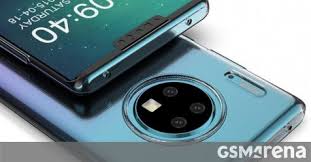
Breaking News
Importing Poverty into America: Devolving Our Nation into Stupid
 Grand Theft World Podcast 273 | Goys 'R U.S. with Guest Rob Dew
Grand Theft World Podcast 273 | Goys 'R U.S. with Guest Rob Dew
 Anchorage was the Receipt: Europe is Paying the Price… and Knows it.
Anchorage was the Receipt: Europe is Paying the Price… and Knows it.
 The Slow Epstein Earthquake: The Rupture Between the People and the Elites
The Slow Epstein Earthquake: The Rupture Between the People and the Elites
Top Tech News
 Drone-launching underwater drone hitches a ride on ship and sub hulls
Drone-launching underwater drone hitches a ride on ship and sub hulls
 Humanoid Robots Get "Brains" As Dual-Use Fears Mount
Humanoid Robots Get "Brains" As Dual-Use Fears Mount
 SpaceX Authorized to Increase High Speed Internet Download Speeds 5X Through 2026
SpaceX Authorized to Increase High Speed Internet Download Speeds 5X Through 2026
 Space AI is the Key to the Technological Singularity
Space AI is the Key to the Technological Singularity
 Velocitor X-1 eVTOL could be beating the traffic in just a year
Velocitor X-1 eVTOL could be beating the traffic in just a year
 Starlink smasher? China claims world's best high-powered microwave weapon
Starlink smasher? China claims world's best high-powered microwave weapon
 Wood scraps turn 'useless' desert sand into concrete
Wood scraps turn 'useless' desert sand into concrete
 Let's Do a Detailed Review of Zorin -- Is This Good for Ex-Windows Users?
Let's Do a Detailed Review of Zorin -- Is This Good for Ex-Windows Users?
 The World's First Sodium-Ion Battery EV Is A Winter Range Monster
The World's First Sodium-Ion Battery EV Is A Winter Range Monster
 China's CATL 5C Battery Breakthrough will Make Most Combustion Engine Vehicles OBSOLETE
China's CATL 5C Battery Breakthrough will Make Most Combustion Engine Vehicles OBSOLETE
Samsung Releasing Smartphone Using Graphene Battery for 15-30 Minute Charging in 2020

Samsung will release a smartphone powered by new graphene battery technology that can fully charge in under 30 minutes in 2020, or possibly 2021. This will be three to five times faster than today's lithium-ion batteries which take about 90 minutes to charge.
In 2017, Samsung Advanced Institute of Technology (SAIT) announced they had developed a "graphene* ball," a unique battery material that enables a 45% increase in capacity, and five times faster-charging speeds than standard lithium-ion batteries. The breakthrough provides promise for the next generation secondary battery market, particularly related to mobile devices and electric vehicles. In its research, SAIT collaborated closely with Samsung SDI as well as a team from Seoul National University's School of Chemical and Biological Engineering.



